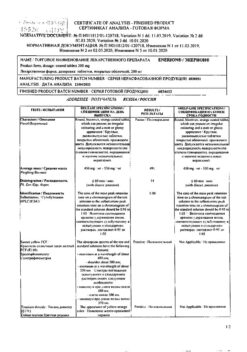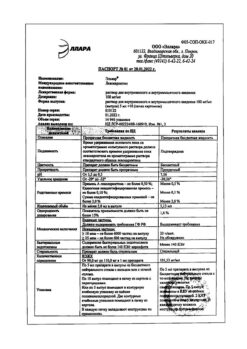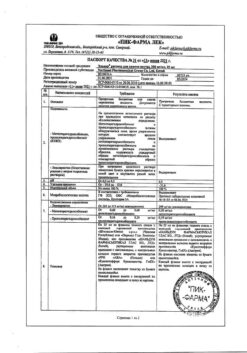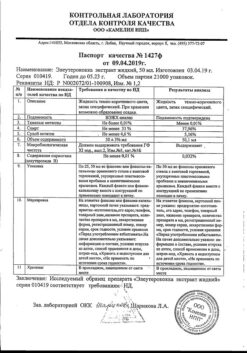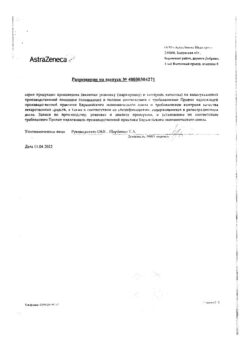No products in the cart.
Dietressa, tablets, 100 pcs.
€1.00
Out of stock
(E-mail when Stock is available)
Description
Pharmacological properties
Pharmacodynamics
Through allosteric modulation mechanisms the drug sensitizes cannabinoid receptor type I, which is accompanied by increase of its
sensitivity to endogenous cannabinoid neuropeptides. This results in normalization of the endocannabinoid regulation of the mesolimbic system including the food center in the hypothalamus.
It was shown experimentally that when the drug is given to animals the self-stimulation of the lateral hypothalamus is abolished, which indicates saturation of the system of positive emotional reinforcement, reduction of euphoric importance of food, weight gain reduction under high fat diet.
Administration of the drug is accompanied by an inhibitory effect on the processes of obesity: a decrease in food intake and weight loss, without causing both inhibitory and stimulating effects on higher nervous activity.The effect of weight reduction is caused not only by the central, but also by peripheral mechanisms – due to modulation of cannabinoid receptors of adipocytes (fat cells), activation of their basic metabolism.
The drug is not addictive and does not have narcotic effect.
Pharmacokinetics
The sensitivity of modern physico-chemical methods of analysis (gas-liquid chromatography, high performance liquid chromatography,
Chromato-mass spectrometry) does not allow evaluating the content of ultra-low doses of antibodies in biological fluids, organs and tissues, which makes it technically impossible to study the pharmacokinetics of the drug.
Indications
Indications
Long-term therapy of patients with overweight or obesity of I-II degree (body mass index ≥ 25 kg/m2) in combination with a moderately hypocaloric diet.
Pharmacological effect
Pharmacological effect
Pharmacological properties
Pharmacodynamics
Through the mechanisms of allosteric modulation, the drug sensitizes the type I cannabinoid receptor, which is accompanied by an increase in its
sensitivity to endogenous cannabinoid neuropeptides. As a result, endocannabinoid regulation of the mesolimbic system, including the food center in the hypothalamus, is normalized.
It has been experimentally shown that when the drug is administered to animals, self-stimulation of the lateral hypothalamus is abandoned, indicating saturation of the system of positive emotional reinforcement, a decrease in the euphorigenic significance of food, and a decrease in body weight gain under conditions of a high-fat diet.
Taking the drug is accompanied by an inhibitory effect on the process of obesity: a decrease in food consumption and weight loss, without causing either an inhibitory or a stimulating effect on higher nervous activity. The effect of weight loss is due not only to central, but also to peripheral mechanisms – due to the modulation of cannabinoid receptors of adipocytes (fat cells), activation of basal metabolism in them.
The drug is not addictive, does not cause drug dependence, and does not have a narcotic effect.
Pharmacokinetics
Sensitivity of modern physicochemical methods of analysis (gas-liquid chromatography, high-performance liquid chromatography,
gas chromatography-mass spectrometry) does not allow assessing the content of ultra-low doses of antibodies in biological fluids, organs and tissues, which makes it technically impossible to study the pharmacokinetics of the drug.
Special instructions
Special instructions
The drug contains lactose monohydrate, and therefore is not recommended for use in patients with congenital galactosemia, glucose or galactose malabsorption syndrome, or congenital lactase deficiency.
Dietress does not affect the ability to drive vehicles and other potentially dangerous mechanisms.
In a small number of cases, at the beginning of a course of therapy with Dietress, a temporary (from two to eight days) slight increase in appetite may be observed, which does not cause weight gain and does not require discontinuation of the drug.
Composition
Composition
Active substances:
Antibodies to cannabinoid receptor type 1, affinity purified – 0.006 g.*
Excipients: lactose monohydrate, microcrystalline cellulose, magnesium stearate.
* applied to lactose in the form of a mixture of three active aqueous-alcoholic dilutions of the substance, diluted 10012, 10030, 100200 times, respectively.
Pregnancy
Pregnancy
The safety of using Dietressa in pregnant women and during lactation has not been studied. If it is necessary to take the drug, the risk/benefit ratio should be taken into account.
Contraindications
Contraindications
Increased individual sensitivity to the components of the drug.
Ditressa is not recommended for use in children under 18 years of age due to insufficient data on effectiveness and safety for this age.
Side Effects
Side Effects
When using the drug for the indicated indications and in the indicated dosages, no side effects were identified. Individual hypersensitivity reactions to the components of the drug are possible.
Interaction
Interaction
No cases of incompatibility with other drugs have been reported to date.
Overdose
Overdose
No cases of overdose have been reported to date. In case of accidental overdose, dyspepsia may occur due to
fillers included in the preparation.
Short product description
Short product description
Dietressa is a drug for long-term therapy of patients with overweight or grade 1 obesity. Acts on the food center in the hypothalamus. In combination with a hypocaloric diet, Dietressa promotes weight loss by reducing the feeling of hunger and increasing the feeling of fullness when eating a small portion of low-calorie food.
Storage conditions
Storage conditions
In a place protected from light, at a temperature not exceeding 25 ° C.
Keep out of the reach of children.
Shelf life
Shelf life
3 years. Do not use after expiration date.
Manufacturer
Manufacturer
Materia Medica Holding, Russia
Additional information
| Shelf life | 3 years. Do not use after the expiration date. |
|---|---|
| Conditions of storage | In the dark place at a temperature not exceeding 25 ° C. Keep out of reach of children. |
| Manufacturer | Materiala Medica Holding, Russia |
| Medication form | pills |
| Brand | Materiala Medica Holding |
Related products
Buy Dietressa, tablets, 100 pcs. with delivery to USA, UK, Europe and over 120 other countries.





